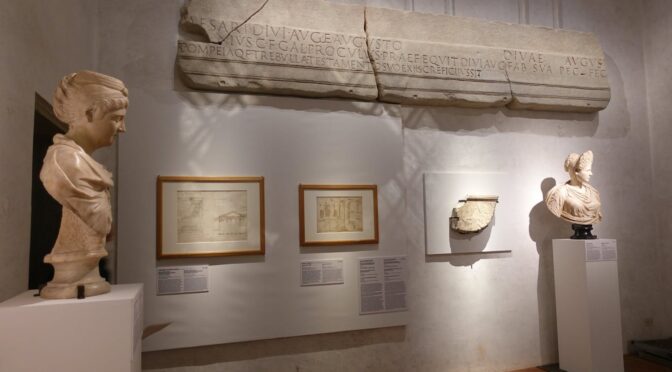FLORENCE, ITALY – Powerful. Determined. Discussed. Independent. Rebellious. And much more. With all of their stories, their secrets, their struggle for civil, political and economic emancipation, Roman women of the Imperial age are the protagonists of the exhibition entitled ‘Imperatrici, matrone, liberte. Volti e segreti delle donne romane’ (Empresses, matrons, freedwomen. Faces and secrets of ancient Rome).
Curated by Novella Lapini under the direction of Fabrizio Paolucci and set up in the Sala Detti and the Sala del Camino on the first floor of the Uffizi. According to a statement, it was inaugurated at the beginning of November and closed due to Covid restrictions only one day later. The exhibit is completely digitalized in high definition and it is possible to take a free virtual tour on the website of the museum.
It is the first show of the gallery that can be visited online in this way. It is possible to zoom on details of the artwork and see the explanations and additional information in Italian and English.
It will be possible to directly connect to the technical sheet of the oeuvre in the archives of the museum’s website. The statement added that there are 30 artworks coming from the rich archaeological collection of the museum complex: they include the sculptures of Nero’s mother Agrippina, Domizia Longina, Domiziano’s wife. They describe the lives of Roman women in the first two centuries of the Empire, from the start of the I century until the second half of the II century AD, focusing on positive as well as negative models embodied by the Empresses and the powerful women of the Imperial House, which gives evidence of the extremely high social status women could achieve in ancient Rome and lets us know fascinating stories from matrons’ and freedwomen’s daily life.
The exhibition also displays remarkable loans from the National Archaeological Museum of Florence, like some precious gold coins from the Roman era that allow us to get an idea of the female role in the Imperial House’s propaganda, together with pieces from the National Library of Florence like some sixteenth-century codes. Renaissance drawings from the Department of Prints and Drawings of the Uffizi complete the exhibition by showing the different representations of the ancient epigraphs on display.
“The Uffizi Gallery over the last few years has dedicated great attention on the themes of gender history – commented the museum’s director Eike Schmidt – changing the traditional and traditionalist image of women and showing instead their creative, strong and indomitable side. The show is also a unique occasion to allow our visitors to admire splendid pieces of our very important archaeological collection that will surprise our most careful public”.
Eirini Lavrentiadou is an actress and singer, born in Thessaloniki in 1992. She lives in Florence, where she trained at the city’s Theatre Academy and the Fiesole School of Music. She has performed in classical Greek and European plays, worked with international directors and companies, and appeared in concerts ranging from opera to jazz. She contributes to Florence Daily News as a writer.
Discover more from Florence Daily News
Subscribe to get the latest posts sent to your email.

